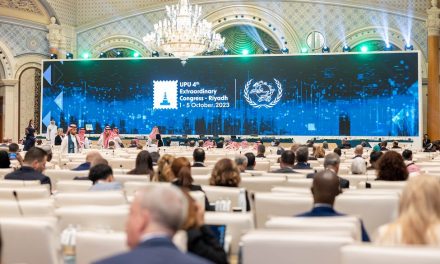
EMISSION: Not Impossible
It does not sound a lot, does it? 0.07%. That is the percentage of CO2 emissions the postal sector currently contributes annually to world levels. Taking for granted that the sector is largely powered by trucks, planes and vans, I, for one, would have thought the result would be around the 1% mark, maybe even higher.
A new Universal Postal Union (UPU) study revealed the results on the eve of the world’s most significant climate change conference in recent times – which kicks off in Copenhagen on 7 December. The report states that, of the 38bn tonnes of CO2 emissions generated in 2008 by mankind, the postal sector contributed 26m tonnes.
The conference, which runs until 18 December, includes the 15th Conference of the Parties (COP 15) to the UN’s Framework Convention on Climate Change. It is also widely believed that a successor to the Kyoto Protocol will be discussed. The UPU have been campaigning for an improved environmental framework for some time now, with the Union’s efforts regularly featured on the news pages of Post&Parcel, which included the signing of a large banner, emblazoned with ‘Seal the Deal’, at the World Postal Forum in Hannover earlier this year.
Posts in industrialised countries emitted around 11m tonnes of CO2, or 41% of the total, while those in the developing and least developed countries released 15m tonnes, or 59% of the total, according to the UPU.
“This first global inventory is a major step forward in our efforts to combat climate change,” said UPU director general Edouard Dayan, who will attend the Copenhagen conference on 15 & 16 December. “The UPU will work with all its partners, including the United Nations Environment Programme, to encourage the polluters of today and tomorrow to reduce their environmental impact in the long term. Sound management of environmental issues can drive growth. In taking up the challenge of green growth, businesses can rethink their logistics chain processes, improve their efficiency, plan long-term energy saving measures, develop new products and services less harmful to the environment and project a responsible business image,” Dayan added, with the UPU looking into setting up a financing mechanism to compensate Posts’ carbon emissions.
And this project is the latest in a long line of initiatives that have seen leading Posts strive for a greener future. Among the countless stories of hybrid vehicles, environmentally-friendly offices, greener machinery, recycled packaging, and so on and so forth, major programmes have had a consistently growing influence on how postal operations have been carried out in 2009. The most notable of these have been Deutsche Post DHL’s GoGreen programme, and TNT’s corporate responsibility strategy. Even across the Atlantic, USPS has pro-actively sought for better environmental results in 2009, with the publication of its sustainability report at the forefront of its vision for the future.
The importance in delivering a greener future cannot be underestimated, and it is important for our industry to sit up and take note and not let its fine progress go unnoticed. That’s why I am pleased to see that 15 of the top postal CEOs in the world will join the political heavyweights in Copenhagen. On 11 December, they will be in attendance as the International Post Corporation (IPC) unveils its first sustainability report for the sector, which will be published in full on Post&Parcel that morning. Furthermore, the IPC will also announce its 2020 targets – which will urge the industry to not relent in the fight against climate change.
The postal sector can proudly take its place in Denmark this month, knowing that the industry as a whole is moving forward collectively in search of a greener future.
Post&Parcel will keep you up-to-date with events in Copenhagen.














As someone who tries to do his bit for the environment with three dustbins, bottle banks, plastic boxes, paper bins plus a myriad of other energy saving devices, I am pleased that the postal industry is doing its bit, perhaps though we should put things into perspective and re-evaluate the many millions being spent by postal operators to be green or seen to be green (sceptic?).
The postal industry produces 26m tonnes of CO2.
The Indonesian peatlands produce 73 times as much.
10m cows produce the equivalent to 26m tonnes of CO2, therefore the 1.5b cows produce 150 times as much CO2 (methane really) as posts.
Termites produce 18 times as much greenhouse gas as the postal industry.
Perhaps if the politicians in Copenhagen started spending money in the areas that make a difference as opposed to gain votes then we might see some dramatic changes.
Furthermore, everyone sees China and India as the new guilty parties (having taken over from the US) but Australians produce 5 times more CO2 per capita than China and 15 times more than India. Come on Australia.
Anyway, rant over, back to finding some more energy saving bulbs, turning off my computer, emptying out my deleted items (need to be stored on servers which need powering and cooling)